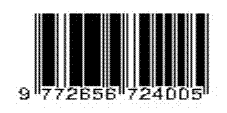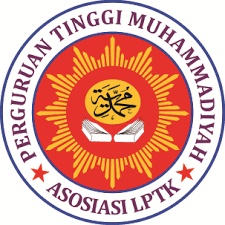Publication Ethic
Publication Ethics and Malpractice Statement
Publication Ethic
The Journal of Mathematics Innovation (Inomatika) is managed by the Mathematics Education of Universitas Muhammadiyah Bangka Belitung. This publication ethic explains the ethical behavior of all parties involved in the process of publishing an article in this journal, including the chief editor, editorial board, reviewers, and authors.
The code of scientific publication ethics in this journal upholds three values based on the Regulation of the Head of LIPI No. 5 of 2014 on the Code of Ethics for Scientific Publications, which are:
- Neutrality, which is free from conflicts of interest in the management of publications;
- Justice, which is giving authorship rights to those entitled as authors/writers; and
- Honesty, which is free from duplication, fabrication, falsification, and plagiarism (DF2P) in publications.
Publication Decision by the Editor
The editor of the Journal of Mathematical Innovations (Inomatika) coordinates with authors, reviewers, and journal managers in the manuscript publication process. The editor is responsible for determining which articles submitted to the journal should be published in a fair, unbiased, and timely manner. Editors may be guided by the policies set by the journal's editorial board and the legal limitations in place, such as defamation, copyright infringement, and plagiarism. Editors can discuss with each other in making decisions on the submitted articles.
Aspect of Fairness
Editors must be fair in deciding which articles to publish, meaning in evaluating manuscripts submitted to the journal. Editors may reject a manuscript if it does not fit the journal's scope or is of low quality, but not because of the authors' race, gender, sexual orientation, religious beliefs, ethnicity, nationality, political views, author background (institutional affiliation), or other interests.
Confidentiality Aspect
Editors and all editorial staff are not allowed to disclose any information about manuscripts submitted to the journal to anyone other than the authors, reviewers, potential reviewers, other appropriate editorial board members, and the publisher, as the material submitted to the journal is confidential.
Disclosure and Conflict of Interest
Unpublished material disclosed in a submitted manuscript must not be used by editors for their own research without the written consent of the author.
Reviewer Tasks
Contribution to Editorial Decisions
Reviewers are tasked with assisting the editor in reviewing manuscripts and conveying the results of the review to the editor as material for making editorial decisions on the suitability of a manuscript for publication, as well as assisting authors in improving the quality of their manuscript through the editor by providing critiques, suggestions, feedback, and recommendations.
Promptness
Manuscripts must be reviewed in a timely manner in accordance with the journal writing guidelines (journal template). Any reviewer who feels incapable of conducting a review quickly or does not have enough time to review a manuscript must immediately inform the editor and withdraw from the article review process.
Confidentiality
Every manuscript received by a reviewer for review is a confidential document. The manuscript must not be given or discussed with others except with permission from the editor. Reviewers are expected to protect the privacy of authors by not disseminating the results of corrections, suggestions, and recommendations given.
Standards of Objectivity
Reviews must be conducted honestly, objectively, and supported by clear arguments. This means, personal criticism of the author is not allowed. Reviewers should express their views clearly with supporting arguments. Reviewers must not be influenced by friendships, competition, or work affiliations that could result in non-objective decision recommendations.
Acknowledgment of Sources
Reviewers must identify relevant work not cited by the author in the manuscript. Any statement that is an observation, derivation, or argument must be accompanied by the relevant citation. Reviewers should contact the editor if there is substantial similarity or overlap between the manuscript under consideration and any other manuscript that has been or will be published.
Disclosure and Conflict of Interest
Information or ideas obtained through the review process must be kept confidential and not used for personal benefit. Reviewers must decline to review manuscripts in which they have conflicts of interest resulting from competition, collaboration, relationships, or connections with any of the authors, companies, or institutions connected to the manuscript.
Author Responsibilities
Reporting Standards
Reports must be accurately presented based on the results of original research that significantly addresses and answers the research objectives. The data presented in the manuscript must be accurate, detailed, and provide sufficient references so that other authors can cite and replicate the work. Deliberate dissemination of false or inaccurate information constitutes unethical behavior and is unacceptable.
Data Access and Retention
Authors are required to provide raw data related to the manuscript submitted for review and editing processes, so that it can be publicly accessible in the future.
Originality and Plagiarism
The manuscript submitted must be an original work written by the authors. If the authors use results or words from others, they must cite those words appropriately according to citation procedures. Authors must not copy the bibliography from a publication if they have not read the cited work.
Multiple, Redundant, or Concurrent Publication
The manuscript submitted has not been published anywhere in any language. Authors are not allowed to submit and publish manuscripts that essentially describe and illustrate the same research to more than one journal or publication. Submitting and publishing the same manuscript to more than one journal concurrently constitutes unethical publishing behavior and is unacceptable.
Acknowledgment of Sources
Authors must always provide proper acknowledgment of the work of others. Authors should correctly cite publications that have contributed to the work submitted. Authors who refer to the work of others accurately in citations and quotations used in the submitted work.
Authorship of the Manuscript
Manuscript authorship should be limited to those who have made a significant contribution to the conception, design, execution, or interpretation of the reported research. All those who have made significant contributions should be listed as co-authors. Others who have participated in certain substantive aspects of the research project should be acknowledged or listed as contributors and given thanks. The corresponding author must ensure that all listed authors are appropriate to their contributions and that no inappropriate authors are listed, as well as that all authors have seen and approved the final version of the manuscript and agreed to its submission for publication.
Hazards and Human or Animal Subjects
If the research or work involves chemicals, procedures, or equipment that are hazardous and not commonly used, the author must detail these in the manuscript.
Disclosure and Conflicts of Interest
Any conflict of interest, whether substantive or financial, that could affect the results or interpretation of the manuscript must be disclosed by the authors. All sources of financial support for the research must be disclosed.
Fundamental Errors in Published Works
If an author discovers significant errors or inaccuracies in their manuscript to be published, they must immediately notify the journal editor or publisher and cooperate with the editor or publisher to retract the submitted manuscript and correct it

























